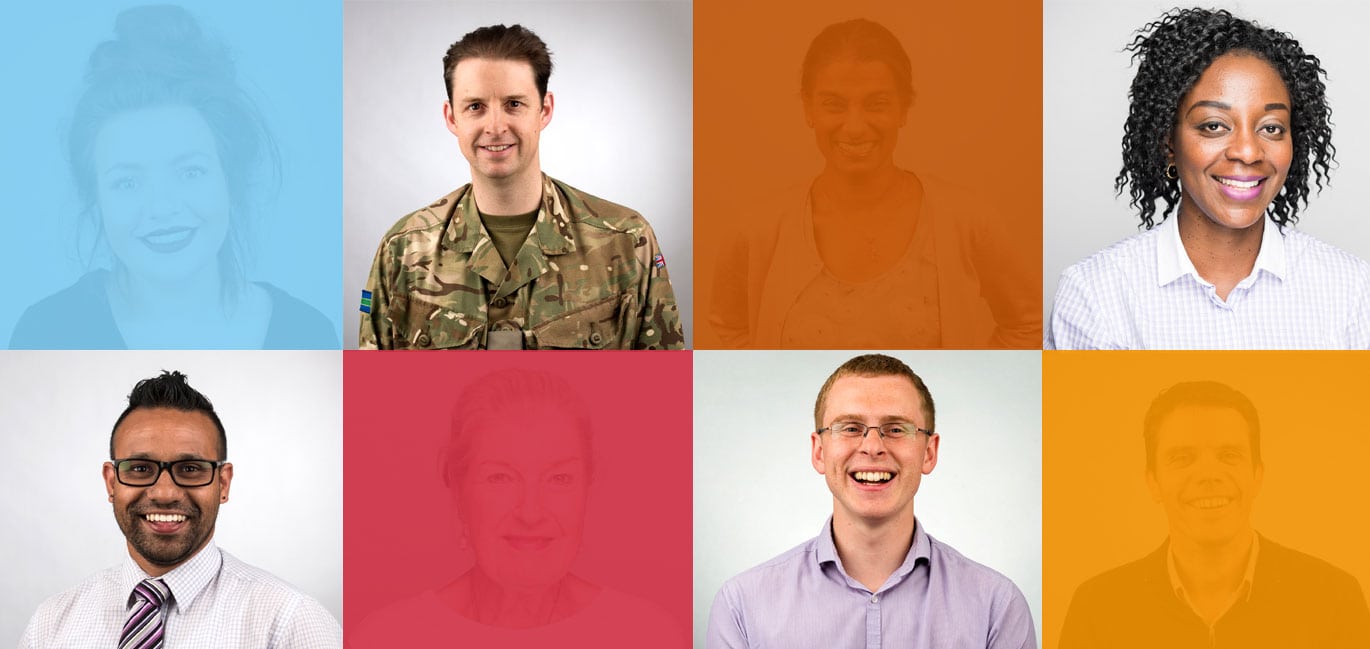We talk to DE&S Neuro Inclusivity Network chair Simon about what neuro-inclusivity means and what’s being done to promote this at DE&S.
Share this story
I lead the MOD’s network for neurodiversity, called the Neuro Inclusivity Network’. The network promotes, facilities, and supports a neurodiverse community (of neurodivergent and neurotypical individuals), and increase diversity of thought.
Fundamentally, we are striving to make MOD and DE&S a better place in which to work. We are a network which supports everyone, because everyone thinks differently, regardless of whether they possess a neurological condition or not.
Our activities include supporting personnel, on a one-to-one basis, on specific queries and issues; arranging and delivering neurodiversity events to support the community; influencing the MOD to be more inclusive of neurodiversity in its organisation; influencing an improved culture of diversity of thought; and, aspiring to be a role model organisation for inclusion of neurodiversity in the UK.
History has shown us the benefits of having a diverse workforce.
History has shown us the benefits of having a diverse workforce. During the Second World War, the Government Code & Cypher School at Bletchley Park needed to break the ‘Enigma Code’; doing so would give the Allies access to the encrypted communications of the Axis forces. The population at Bletchley Park started with 150 personnel, but expanded to nearly 10,000 people during the war.
It is important to note that the workforce was not just diverse because of individuals who possessed neurological conditions, but for other characteristics too, such as gender, age, religion, nationality, and sexuality.
Consequently, the code was broken, shortening the war by 2-4 years, and saving many lives; by having a diverse workforce, a significant operational impact was demonstrated.
Legally speaking, neurological conditions are classified as disabilities under the 2010 Equality Act; therefore, the MOD is obliged to protect individuals with neurological conditions from discrimination in the workplace.
And, morally, we need to represent and reflect the British society that MOD serves and protects.
In more recent times, the outcomes of the Iraq Inquiry are driving MOD to improve diversity of thought and mitigate groupthink in the organisation. For the benefit of operational effectiveness, embracing diversity allows us to do a number of things, such as:
- Build stronger, cohesive teams;
- Allow personnel to fulfil their potential;
- Better access to recruiting talented personnel;
- Create a more engaged and motivated workforce, with improved retention, wellbeing, and performance;
- Better engagement with British society; and,
- Improve the reputation of defence.
Doing the above will enable us to mitigate groupthink and improve diversity of thought to:
- Make better decisions;
- Solve challenging problems;
- Think more critically and harness innovation;
- Challenge assumptions; and,
- Improve organisational performance.
The network is influencing the MOD to better consider the impact of its policies, processes, actions, and decisions, on neurodiversity, particularly those individuals with neurological conditions.
The network is relatively new, and still has a long way to go. Currently, it is raising awareness of the network, of neurological conditions, and of diversity of thought, in the organisation. It is also influencing the MOD to better consider the impact of its policies, processes, actions, and decisions, on neurodiversity, particularly those individuals with neurological conditions. It has supported individuals on one-to-one queries, and has gained champions, from the Senior Leadership Group, to represent and promote the interests of the network and the organisation.
In the near future, the network will be implementing a briefing and training package on neurodiversity that can be accessed by any person, team or committee within the MOD. This is so the workforce may better understand why neurodiversity is of benefit to their work and the organisation, for delivering and supporting defence capability, but to also better understand the challenges faced by personnel who possess neurological conditions, as well as the positive attributes they can bring to their work and a team.
Making the most of a more diverse organisation will allow us to be stronger and do better in the work we do.
As well as improving the support to neurodivergent personnel, and raising awareness and acceptance of neurological conditions and diversity of thought, in the MOD, the network aspires to influence other public and private sector organisations, by acting as a role model in the UK for the inclusion of neurodiversity in the workplace.
To support this aspiration, it hopes that the network can gain endorsement of its activities as ‘good practice’ from organisations and charities who support neurological conditions, as well as from UK ‘Think Tanks’.
An analogy that the network uses is the spectrum of light shining through a prism to form a beam of white light (think Pink Floyd’s Dark Side of the Moon). This to me highlights that making the most of a more diverse organisation, will allow us to be stronger and do better in the work we do.







